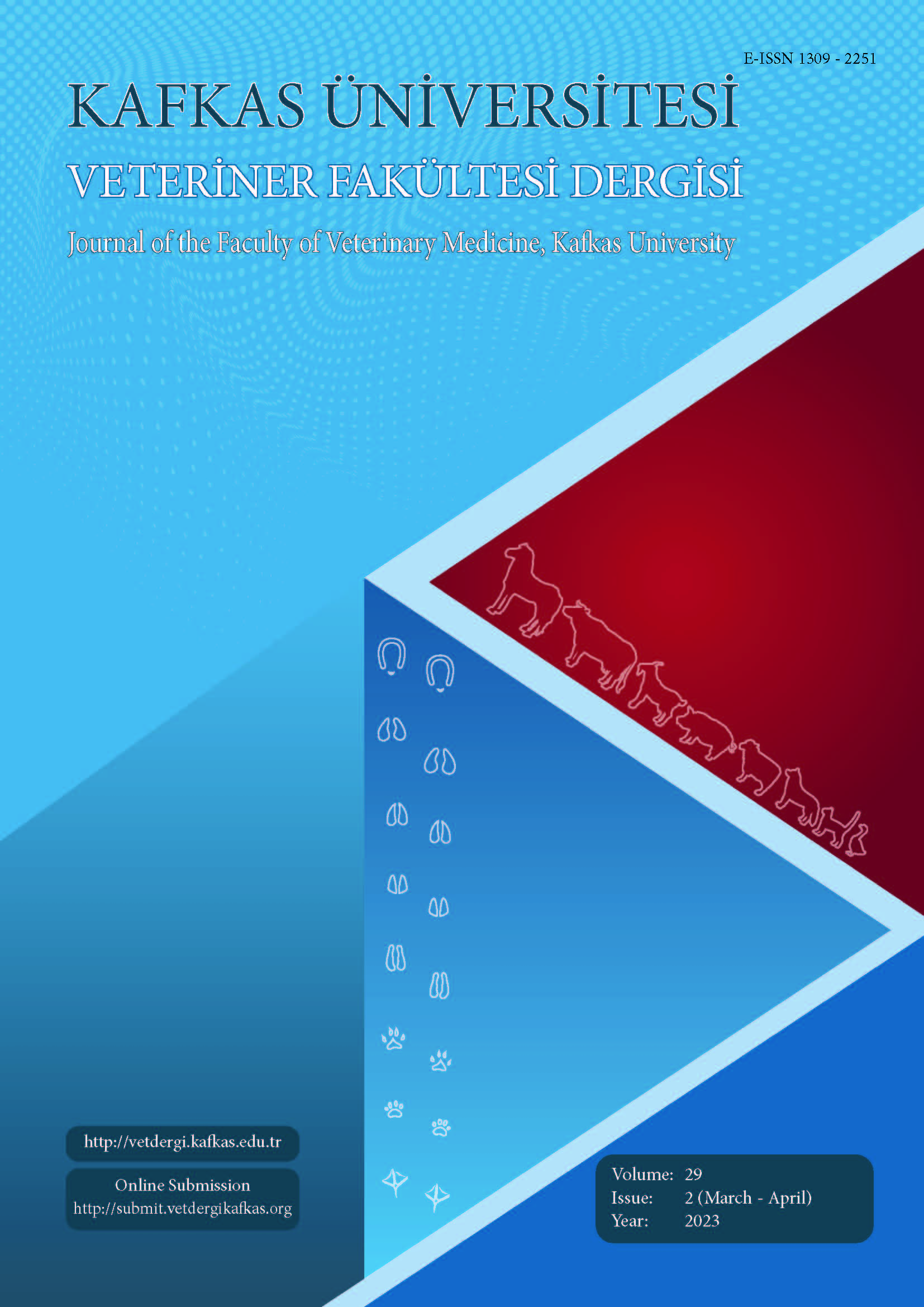
This journal is licensed under a Creative Commons Attribution-NonCommercial 4.0 International License
Kafkas Üniversitesi Veteriner Fakültesi Dergisi
2023 , Vol 29 , Issue 2
Influence of Sheep Tail Fat and Autochthonous Starter Culture on the Formation of Volatile Nitrosamines in Sucuk
1Bandırma Onyedi Eylül University, Bandırma Vocational School, Department of Food Processing, TR-10200 Bandırma, Balıkesir - TÜRKİYE
DOI :
10.9775/kvfd.2022.28904
The study aimed to investigate the effect of sheep tail fat (STF) on the volatile nitrosamines in a dry fermented sausage (sucuk)
with/without autochthonous starter culture (Lactiplantibacillus plantarum GM77 and Staphylococcus xylosus GM92). Beef fat (BF) was used
as control. The production was carried out under controlled conditions with initial fermentation temperature of 22±1ºC. After production,
samples were subjected to pH, aw, thiobarbituric acid reactive substances (TBARS), residual nitrite, instrumental color and nitrosamine
analysis. According to results, the use of STF increased TBARS value, while it decreased L* value. The use of starter culture lowered the
mean pH below 5.0. On the other hand, mean pH of 5.23 was found in the group without starter culture. Both starter culture and fat type
had no significant effect on residual nitrite. N-nitrosopiperidine (NPIP) content was affected by STF. In contrast, STF showed no significant
effect on N-nitrosodimethylamine (NDMA) and N-nitrosomethylethylamine (NMEA) content of sucuk. Starter culture caused an increase
in NDMA levels, while decreasing N-nitrosopiperidine (NPIP). According to principal component analysis (PCA), pH, aw, TBARS, NDMA
and NPIP located on positive side of the principal component 1 (PC1), while NMEA, residual nitrite, L*, a* and b* values were in negative
side of the PC1. In addition, NMEA showed more correlation with BF.
Keywords :
Lipid oxidation, Sheep tail fat, NDMA, NPIP, Sucuk, TBARS











